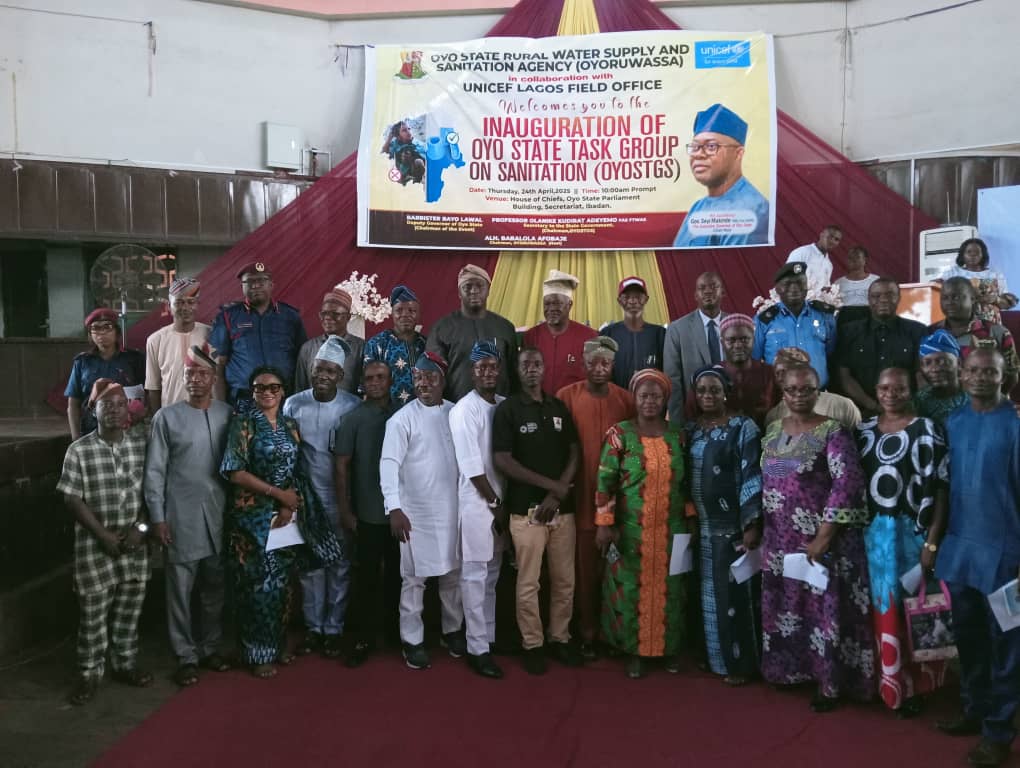As part of plans to address the public health challenge of open defecation, the Oyo State Government has inaugurated a 20-member State Task Group on Sanitation (STGS), with a clear target, to make the state open defecation-free by 2028.
The inauguration ceremony took place on Thursday, April 24, 2025, at the House of Chiefs, Secretariat, Ibadan, where the Deputy Governor, Barr. Bayo Lawal, represented by the Commissioner for Information and Orientation, Prince Dotun Oyelade, formally unveiled the team.
In a press statement signed by Oyelade, the government reaffirmed its commitment to promoting equitable access to water, sanitation, and hygiene across homes, schools, markets, and healthcare facilities. The STGS, chaired by the Secretary to the State Government, Professor Olanike Adeyemo, will lead the implementation of the National Open Defecation Free (ODF) Certification Protocol.
“Many of our public institutions still lack basic sanitation facilities,” Oyelade said.
For a state previously ranked among the worst for open defecation by the 2021 WASHNORM survey, the task group represents a renewed push to reverse that trend. The Chairman of the Oyo State Rural Water Supply and Sanitation Agency (OYORUWASSA), Alhaji Babalola Afobaje, described the initiative as timely and necessary, noting that improved hygiene practices are fundamental to public health and dignity.
Hon. Olorunpoto Cephas, Chairman of the State House Committee on Environment, Ecology and Water Resources, pledged legislative support for the sanitation drive. He emphasized collaboration between RUWASSA, government ministries, local councils, and traditional institutions as critical to achieving the goal.
UNICEF’s WASH Consultant, Mr. Monday Johnson, added that the task group includes government delegates charged with overseeing and collaborating on key sanitation projects throughout the state.
The newly inaugurated members are drawn from a cross-section of relevant agencies and sectors—will now begin the hard work of shifting attitudes, mobilizing communities, and making sanitation a basic right rather than a privilege.

